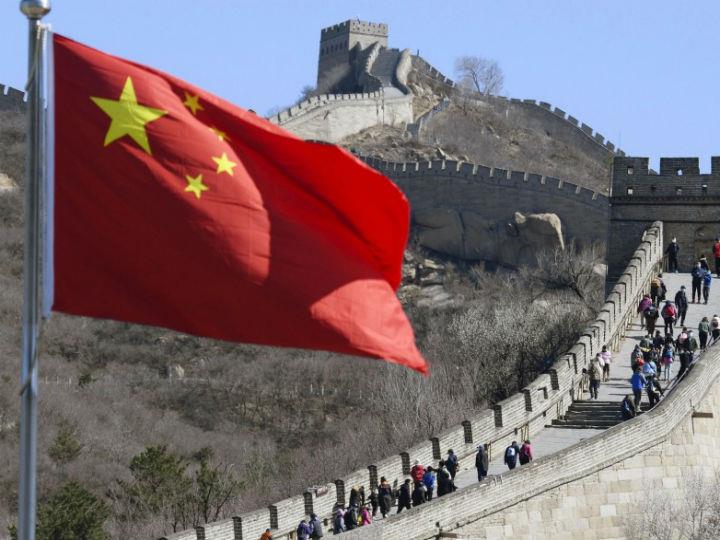by Tom Clifford*
In Beijing this week, this year/s edition of the National People’s Congress (NPC), China’s top legislative body, will be held.
Party town Beijing
In addition, the Chinese People’s Political Consultative Conference (CPPCC) will convene. It is an advisory body drawn from delegates representing a cross-section of society, including the arts, medicine, transport and construction from around China.
Together, the event heralds under the moniker the “Two Sessions.” Thousands of delegates are pouring into the capital to debate, argue and socialize. The sessions are taking place now, after being postponed in March due to COVID 19.
A gigantic PR exercise
In reality, the NPC is an exercise in public relations, a supreme example of rubber-stamping. Nothing of any merit will be discussed openly.
Yes, TV coverage will highlight the political mass, featuring synchronized applause of the 2,975 delegates. The People’s Liberation Army leads the pack with a total of 294 delegates. Its contingent is followed not by Beijing or Shanghai, but Shandong — the most populous province, with 173 delegates.
Just moving on from COVID 19?
Obviously, in their reports, China’s top leaders will present the COVID 19 outbreak as a challenge that China met successfully.
In case you wonder, the catastrophic initial mistakes, the denials, the harassment of doctors trying to publicize its danger, the mass gathering in January that saw tens of thousands of people openly celebrate Chinese New Year in a huge square, will not be mentioned.
No more Chinese triumphalism
But neither will there be a sense of triumphalism. The virus remains a concern. While it seems, at the moment, to be under control in China, everyone knows it is far too early to declare victory.
China is obviously a one-party state. Ultimate political authority rests with the Chinese Communist Party. Its Politburo Standing Committee, headed by President Xi Jinping, sets policy.
So, the NPC deputies to the congress will sit politely, row-upon-row in the Great Hall of the People and choreograph their applause.
A big bonanza, private exchanges
The real importance of the “Two Sessions” is that it allows leaders of the provinces to come to Beijing and discuss, privately, their concerns.
And so, at the end of each day’s formal and sterile meetings in the Great Hall, once the TV cameras have been switched off, there will actually be forthright discussions.
Serious topics of debate
The informal discussions will take place in the corridors of power, restaurants and hotel lobbies.
There will be intense exchanges of views among the delegates on what is now China’s faltering economy, its anti-pollution efforts, international affairs, the Trump presidency and how to recalibrate China’s damaged position in the world.
Mao’s shadow
One major subject on this informal agenda that makes this year’s Two Sessions intriguing for the outside world is this new sentiment: For the first time since Mao passed away in 1976, China does not expect tomorrow to be better than today.
The social contract, the implicit unwritten understanding between the party and the people — which consists of acceptance of the party’s political primacy in exchange for growing prosperity — is at risk of unraveling.
And this unraveling might have much more serious political consequences than Mao’s failed Cultural Revolution because today’s generation of Chinese people is more educated and much more accustomed to a steady growth in prosperity.
China’s growth and stability pact under duress
Most people in China have long believed that, for this contract to be maintained, economic growth needs to be at least in the region of 5-6% minimum per year.
No one believes China’s GDP growth to be anywhere near that level this year. Even before COVID 19, it probably only reached around 5%. After the outbreak, it is much less, probably around 2%.
Unforeseen circumstances and consequences?
Unforeseen circumstances — sure. But unforeseen circumstances can have unforeseen consequences.
As is the case half way around the world in Germany, Beijing cannot simply turn on the export taps as it did before to get out of economic trouble. China’s major overseas markets are also on their knees. Worse, China as a brand has been damaged.
Exports and the residue of mistrust
Long after this crisis is over, there will be a residue of mistrust for things China. Even before COVID 19, there was a growing sense in the West that China could no longer be trusted.
Just a few years ago, China was regarded by some as the savior of Western capitalism. Of course, the basic irony is putting so much confidence into a communist country to begin with.
Growing international isolation = popular unrest?
Now, there is almost unanimous certainty that China’s charm offensive only works in countries that are truly destitute. For others, China is increasingly beyond the pale.
Frustration in Beijing at growing international isolation and a restive population demanding better living standards could prove to be a potent mix.
Two conclusions
1. While the formality of the “Two Sessions” may not differ much from the past in its robotic format, the informal side-shows this year may be conducted with far more passion than previously.
2. It might even occur to some Chinese delegates that the grim outlook for Chinese economic growth as well as their country’s tarnished international reputation is occurring under the leadership of a president who has accumulated even more power than any one of his predecessors since Mao.
*Irish journalist, currently based in Beijing
**first published in: www.theglobalist.com




 By: N. Peter Kramer
By: N. Peter Kramer
